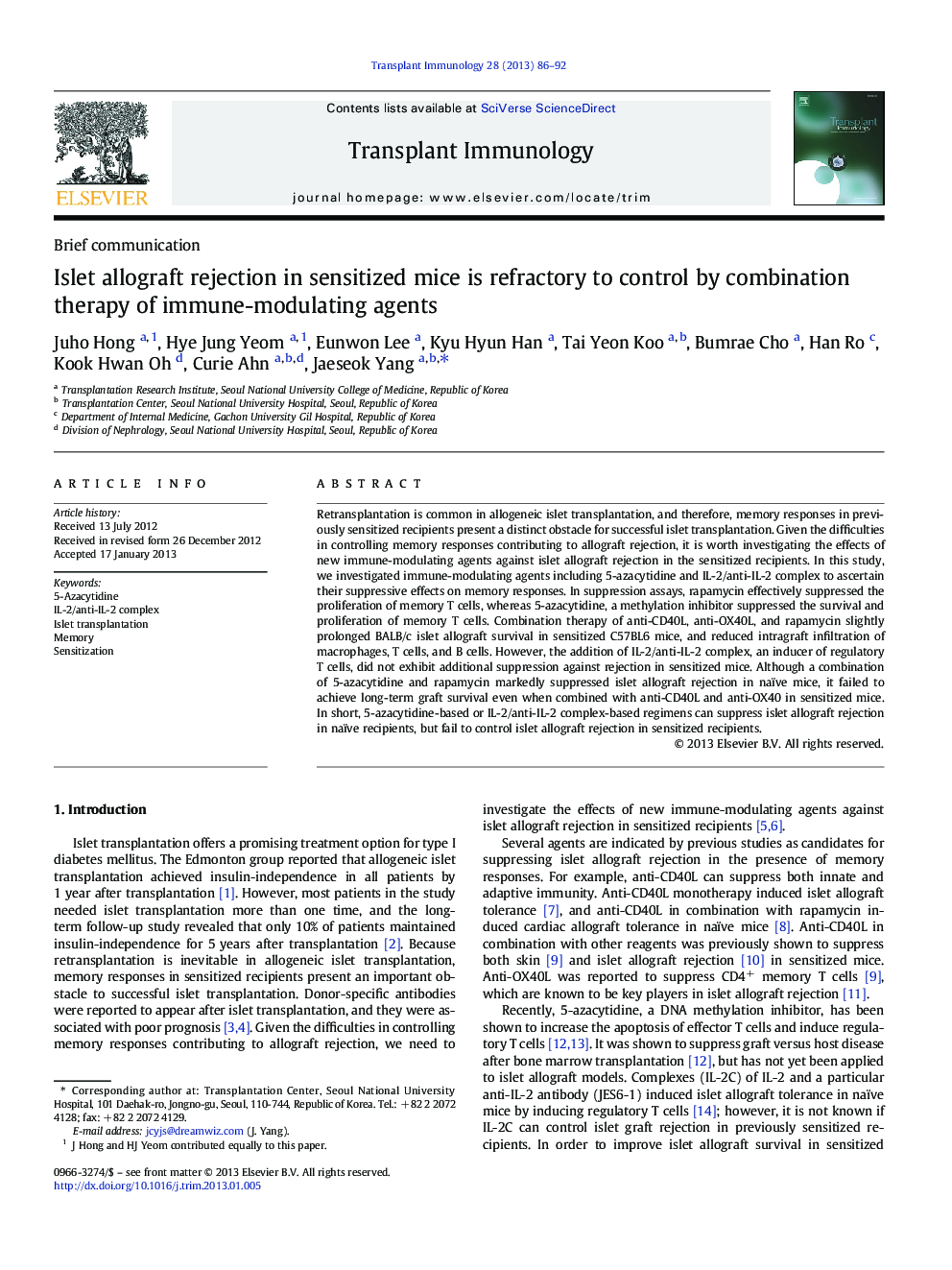| کد مقاله | کد نشریه | سال انتشار | مقاله انگلیسی | نسخه تمام متن |
|---|---|---|---|---|
| 3392155 | 1592678 | 2013 | 7 صفحه PDF | دانلود رایگان |

Retransplantation is common in allogeneic islet transplantation, and therefore, memory responses in previously sensitized recipients present a distinct obstacle for successful islet transplantation. Given the difficulties in controlling memory responses contributing to allograft rejection, it is worth investigating the effects of new immune-modulating agents against islet allograft rejection in the sensitized recipients. In this study, we investigated immune-modulating agents including 5-azacytidine and IL-2/anti-IL-2 complex to ascertain their suppressive effects on memory responses. In suppression assays, rapamycin effectively suppressed the proliferation of memory T cells, whereas 5-azacytidine, a methylation inhibitor suppressed the survival and proliferation of memory T cells. Combination therapy of anti-CD40L, anti-OX40L, and rapamycin slightly prolonged BALB/c islet allograft survival in sensitized C57BL6 mice, and reduced intragraft infiltration of macrophages, T cells, and B cells. However, the addition of IL-2/anti-IL-2 complex, an inducer of regulatory T cells, did not exhibit additional suppression against rejection in sensitized mice. Although a combination of 5-azacytidine and rapamycin markedly suppressed islet allograft rejection in naïve mice, it failed to achieve long-term graft survival even when combined with anti-CD40L and anti-OX40 in sensitized mice. In short, 5-azacytidine-based or IL-2/anti-IL-2 complex-based regimens can suppress islet allograft rejection in naïve recipients, but fail to control islet allograft rejection in sensitized recipients.
► 5-azacytidine and rapamycin suppressed proliferation and survival of memory T cells.
► 5-azacytidine with rapamycin suppressed islet graft rejection in naïve mice.
► 5-azacytidine failed to achieve long-term graft survival in primed mice.
► Anti-CD40L, anti-OX40L, and rapamycin prolonged islet graft survival in primed mice.
Journal: Transplant Immunology - Volume 28, Issues 2–3, March 2013, Pages 86–92